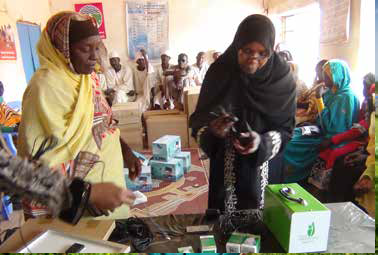
Description of the project: This project aims to empower over 6,800 rural women by improving their access to solar energy for home and production uses. The solar lighting systems, solar cookers, grinders, refrigerators and mobile charging sockets enable women-owned businesses to significantly raise their income. The units are installed and maintained by locally trained beneficiaries, i.e., 29 women and 17 men; the sustainability of the services is ensured by a network of suppliers. A community revolving fund and 8 women-led saving groups allow very low-income persons to access the new technologies and maintenance costs to be covered. A training center ensures equal access to capacity building and learning tools.
Climate impact: Using clean, safe solar energy instead of high emitting kerosene, diesel or biomass reduces the adverse impacts on climate and health. In year one, 100 solar lanterns were installed, saving about 49 tons of CO2. Their scaling up is expected to save another 99 tons of CO2 by 2019. Introducing solar mills to replace old diesel ones will reduce about 3 tons of CO2 emissions per year. In Darfur, where the sunshines over 12h/ day, solar energy brings a high potential for social and sustainable welfare.
Gender impact: The new technologies reduce burdens and hazards faced by women and girls (e.g., indoor air pollution, fire hazards, gender based violence). Time saved is used to engage in income generation and community activities, or attending school or adult classes with an environment enhanced by solar lighting. Targeted technical and management trainings, conducted in the established center, foster women’s entrepreneurship and their collaboration in groups and committees.
Scalability / replicability: The implementation of the project, along with the established revolving fund, will be handed over to the Rural El-Fashir Development and North Darfur Women CBO network to ensure sustainability. Linkages have been developed between private sector solar companies, government, financial institutions, other relevant stakeholders, and service providers through a participatory market development system. This will facilitate future continuity and scaling-up of the solar energy service and promote policies for its sustainability.